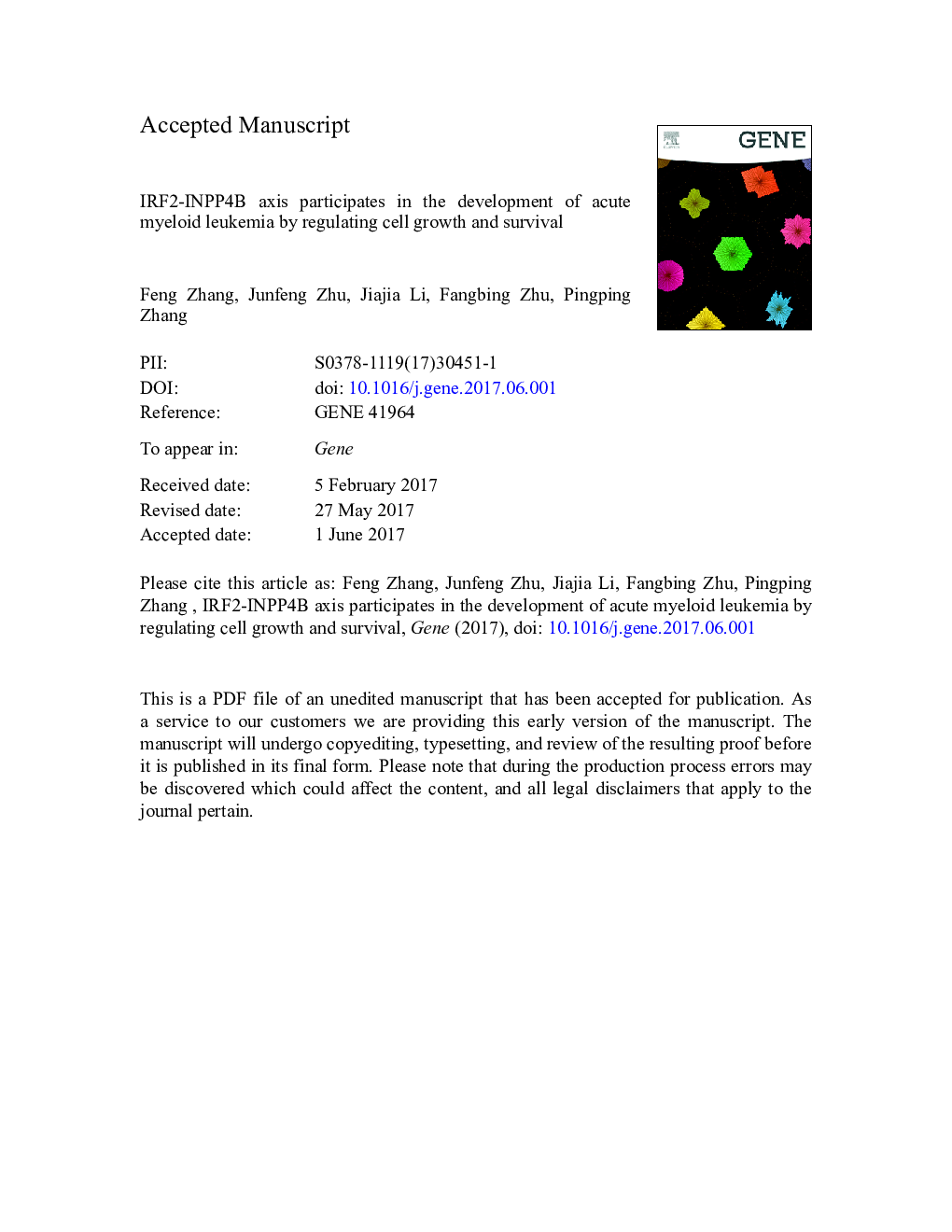| Article ID | Journal | Published Year | Pages | File Type |
|---|---|---|---|---|
| 5589606 | Gene | 2017 | 31 Pages |
Abstract
Acute myeloid leukemia (AML) is a highly heterogeneous disease, which results in the fact that patient management has remained disappointingly uniform. Therefore, the molecular mechanism underlying AML needs to be further investigated. Here in this study, we identify the interferon-regulatory factor 2 (IRF2) as a novel regulator in human AML. We show that IRF2 knockdown inhibits growth, colony formation of OCI/AML-2, OCI/AML-3, and THP-1 cells. In addition, IRF2 knockdown induces apoptosis of AML cells by regulating the apoptotic effectors Bcl-2, Bax and Caspase 3. Further mechanism analysis shows that inositol polyphosphate-4-phosphatase, type-II (INPP4B) contributes to the effects of IRF2 on apoptosis and growth of AML cells. IRF2 binds INPP4B promoter and promotes INPP4B expression in AML cells. Restoration of the expression of INPP4B blocks the effects of IRF2 knockdown on apoptosis and colony formation in OCI/AML-2 and OCI/AML-3 cells. In conclusion, IRF2 serves as an important regulator in AML by targeting INPP4B. Therefore, IRF2 may be a potential target for AML treatment.
Keywords
Related Topics
Life Sciences
Biochemistry, Genetics and Molecular Biology
Genetics
Authors
Feng Zhang, Junfeng Zhu, Jiajia Li, Fangbing Zhu, Pingping Zhang,
